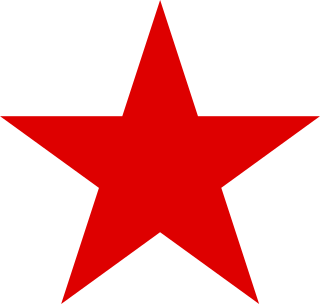
The Austrian People's Party is a conservative Christian-democratic political party in Austria. A successor to the Christian Social Party of the late 19th and early 20th centuries, it was founded immediately following the reestablishment of the Republic of Austria in 1945 and since then has been one of the two largest Austrian political parties with the Social Democratic Party of Austria (SPÖ). In federal governance, the ÖVP has spent most of the postwar era in a grand coalition with the SPÖ. Most recently, it has been junior partner in a coalition government with the SPÖ since 2007. However, the ÖVP won the 2017 election, having the greatest number of seats and formed a coalition with the far-right Freedom Party of Austria (FPÖ). Its chairman Sebastian Kurz is the youngest Chancellor in Austrian history.

Julius Raab was a conservative Austrian politician, who served as Federal Chancellor of Austria from 1953 to 1961. Raab steered Allied-occupied Austria to independence, when he negotiated and signed the Austrian State Treaty in 1955. In internal politics Raab stood for a pragmatic "social partnership" and the "Grand coalition" of Austrian Conservatives and Social Democrats.

Styria is a state, or Bundesland, located in the southeast of Austria. In area it is the second largest of the nine Austrian federated states, covering 16,401 km2 (6,332 sq mi). It borders Slovenia and the Austrian states of Upper Austria, Lower Austria, Salzburg, Burgenland, and Carinthia. The capital city is Graz which had 276,526 inhabitants at the beginning of 2015.

Parliamentary elections to elect all 151 members of the Croatian Parliament were held on November 23, 2003. They were the 5th parliamentary elections to take place since the first multi-party elections in 1990. Turnout was 61.7%. The result was a victory for the opposition Croatian Democratic Union party (HDZ) which won a plurality of 66 seats, but fell short of the 76 needed to form a government. HDZ chairman Ivo Sanader was named the 8th Prime Minister of Croatia on 23 December 2003, after parliament passed a confidence motion in his government cabinet, with 88 Members of Parliament voting in favor, 29 against and 14 abstaining. The ruling coalition, consisting of the Social Democratic Party (SDP), Croatian People's Party (HNS), Croatian Peasant Party (HSS), Party of Liberal Democrats (Libra) and the Liberal Party (LS) did not contest the elections as a single bloc. Namely, the SDP ran with the Istrian Democratic Assembly (IDS), the Party of Liberal Democrats (Libra) and the Liberal Party (LS), HNS ran with the Alliance of Primorje-Gorski Kotar (PGS) and the Slavonia-Baranja Croatian Party (SBHS), while HSS ran on its own.

The Communist Party of Austria is a communist party in Austria. Established in 1918 as the Communist Party of German-Austria (KPDÖ), it is one of the world's oldest Communist parties. The KPÖ was banned between 1933 and 1945 under both the Austrofascist regime and the Nazi German control of Austria after the 1938 Anschluss. It played an important role in the Austrian resistance against the Nazis.

The Austrian Green Party is a green political party in Austria.

The Republicans is a national conservative political party in Germany. The primary plank of the programme is opposition to immigration. The party tends to attract protest voters who think that the Christian Democratic Union (CDU) and the Christian Social Union of Bavaria (CSU) are not sufficiently conservative. It was founded in 1983 by former CSU members Franz Handlos and Ekkehard Voigt, and Franz Schönhuber was the party's leader from 1985 to 1994. The party had later been led by Rolf Schlierer, until 2014. The Republicans had seats in the European Parliament between 1989 and 1994, Abgeordnetenhaus of West Berlin in 1989–1990 and in the parliament of the German state of Baden-Württemberg between 1991 and 2001.
A dominant-party system, or one-party dominant system, is a system where there is "a category of parties/political organisations that have successively won election victories and whose future defeat cannot be envisaged or is unlikely for the foreseeable future." Many are de facto one-party systems, and often devolve into de jure one-party systems. Usually, the dominant party consistently holds majority government, without the need for coalitions.
A voting age is a minimum age established by law that a person must attain before they become eligible to vote in a public election. Today, the most common voting age is 18 years; however, voting ages as low as 16 and as high as 25 currently exist. Most countries have set a minimum voting age, often set in their constitution. In a number of countries voting is compulsory for those eligible to vote, while in most it is optional.

This article provides information on elections and election results in Austria.

Elections to the 53rd Parliament of New South Wales were held on Saturday 22 March 2003. All seats in the Legislative Assembly and half the seats in the Legislative Council were up for election. The Labor Party led by Bob Carr won a third four-year term against the Liberal-National Coalition led by John Brogden.

The Lower Austrian state election of 2008 was held in the Austrian state of Lower Austria on 9 March 2008. They were contested by the Austrian People's Party, the Social Democratic Party of Austria, The Greens – The Green Alternative and the Freedom Party of Austria, all of whom are in the current Landtag, and a number of smaller parties.

The Austrian presidential election took place on 25 April 2010. It was the twelfth election of an Austrian head of state since 1951. The candidates were President Heinz Fischer, Barbara Rosenkranz (FPÖ) and Rudolf Gehring (CPÖ). Heinz Fischer won with just under 80% of the valid votes. The turnout was on the historic low of about 54%.

The Freedom Party of Austria is a right-wing populist, national-conservative political party in Austria. The party, led by Heinz-Christian Strache, is a member of the Europe of Nations and Freedom group in the European Parliament, as well as of the Movement for a Europe of Nations and Freedom.

The Team Stronach, full name Team Stronach for Austria, was a Eurosceptic, right-wing populist political party in Austria founded by and named after Austrian-Canadian businessman Frank Stronach. It was dissolved in August 2017.

The Social Democratic Party of Austria is a social-democratic political party in Austria that is, along with the People's Party, one of the country's two traditional major parties.

The Lower Austrian state election of 2013 was held in the Austrian state of Lower Austria on 3 March 2013. Since 2003 the Austrian People's Party has had a majority of the seats, the Team Stronach, which was standing for election in Lower Austria in the first time, won 5 seats, while the Social Democratic Party of Austria, like the Freedom Party of Austria, lost 2 seats and the Greens could defend their 4 seats.

Legislative elections were held in Austria on 15 October 2017. The Austrian People's Party (ÖVP) emerged as the largest party in the National Council, winning 62 of the 183 seats. The Social Democratic Party (SPÖ) finished second with 52 seats, slightly ahead of the Freedom Party of Austria (FPÖ), which received 51 seats. NEOS finished fourth with 10 seats, and PILZ entered parliament for the first time and came in fifth place with 8 seats. The Green Party failed to cross the 4% threshold and was ejected from parliament, losing all of its 24 seats.

The Lower Austrian state election of 2018 was held in the Austrian state of Lower Austria on 28 January 2018. Since 2003 the Austrian People's Party has had a majority of the seats. NEOS contested Lower Austria for the first time and won 3 seats, while the Social Democratic Party of Austria seat share remained unchanged. The Freedom Party of Austria won 8 seats, doubling their standing in the state, while the Greens only defended 3 of their 4 seats. Team Stronach and the KPÖ did not contest the election.

















